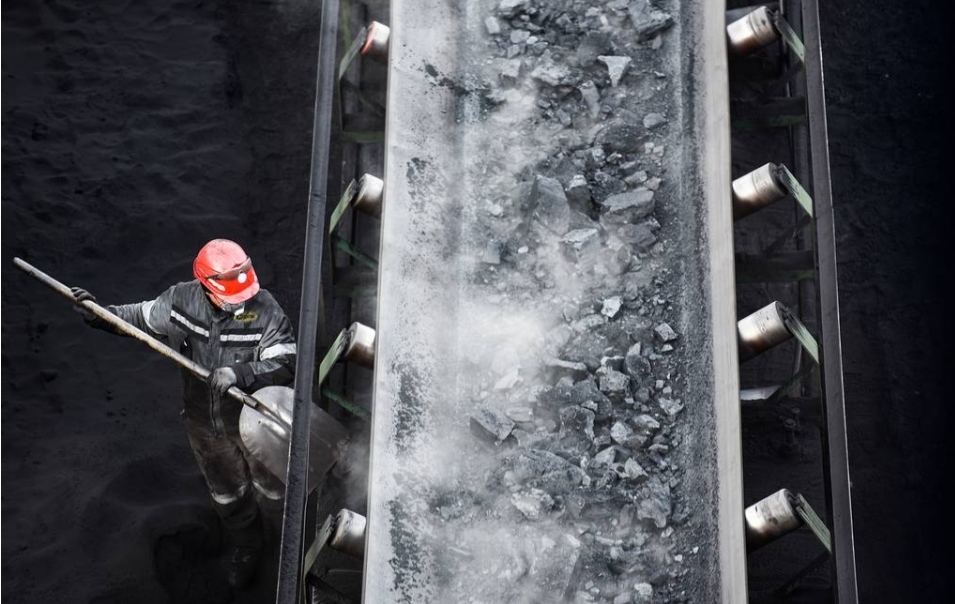Russian Review of the Region Along With Pandora Papers

Kommersant : Historic investigative revelation unveils shadow system that benefits the world’s rich and powerful
The Internal Director of Channel One Konstantin Ernst, entrepreneurs Alexander Abramov and Leonid Lebedev.
The ICIJ writes that Czech Prime Minister Andrei Babis used an offshore investment company to acquire real estate in the south of France worth $22 million, and that King Abdullah II of Jordan, through three offshore companies, secretly acquired three mansions in Malibu worth $68 million.
Anyone who is anyone is on the list from Tony Blair to Shakira and Claudia Schiffer. The report is quite scandalous and it is expected that damage control will soon kick in on the part of those who made it to the list, since it drastically shows as the report says a “shadow economy”.
This isn’t the first time the organization played the whistleblowing card, in 2016, the ICIJ released extracts of documents with data on offshore accounts. The reports were dubbed the Panama Papers. The following year, the consortium published excerpts of approximately 13.4 million documents, dubbed the Paradise Papers.
Georgia’s local elections went smoothly over the weekend. Georgian Dream, the ruling party, came in first with a reported 46.6% of the vote, while the party of the nation’s former President Mikhail Saakashvili, the United National Movement, came in second with 30.5% of the vote.
Saakashvili was taken into custody in Georgia ahead of the election. He had already been sentenced in absentia over two criminal cases on abuse of power to a total of six years in prison. Despite all of that and even his looming arrest, he returned to Tbilisi, declaring that he came to “defend freedom.” Chairman of the State Duma Committee on CIS Affairs Leonid Kalashnikov told the newspaper that Saakashvili’s hopes to make a big political comeback have not been justified, and that he will not be able to help his party in any way. In fact, his return may even be seen as a negative factor.
The election in Georgia took place amidst a political crisis that has been continuing since last autumn. Then, during the parliamentary elections, nine opposition parties refused to work with the ruling party, citing election falsification. The only way to get them to agree was through mediation with the President of the European Council.
This election, according to the newspaper, will most likely be considered valid, and all participants of the Georgian political system will have to work together.
Turkish President Recep Tayyip Erdogan suggested that President Putin consider the construction of two more nuclear power plants, in addition to Akkuyu NPP, that are already under construction by Rosatom, Kommersant writes on Monday.
Presidential Spokesperson Dmitry Peskov solely confirmed that the conversation about two potential new power plants took place at the meeting.
Rosatom said that they are “always open to discuss opportunities that expand cooperation with Turkey,” the newspaper writes. According to Rosatom, they will be able to use technologies and approaches that have been developed for the Akkuyu NPP.
The potential locations are both on the Black Sea, in Sinop and Igneada. Previously, investors from China and Japan were eyeing the project, but were not able to reach a financial agreement.
Sinop is a spot that has been explored previously, for Mitsubishi and France’s Framatome, back in 2008. The plan was to build four 4.6 GW units under the build-own-operate system, but when the construction cost doubled to $44 bln, Turkey decided not to follow through with it.
The project in Igneada also isn’t new. In 2014, Turkey signed an agreement with China’s SNPTC and the American Electrical Corporation Westinghouse to build reactors there, but so far there has been no progress.
Rosatom will require additional investors if it agrees to two consecutive projects in Turkey. For the Akkuyu one, it was able to secure $51 bln rubles ($700 mln) from the budget, and a $700-mln loan from Sberbank and Sovcombank, in addition to using its own funds. In order to reduce the financial burden, Rosatom planned to sell 49% to Turkish investors.
Sergei Sasim from the Institute of Economics and Regulation of Infrastructure Industries at the Higher School of Economics told Kommersant that “the increasing cost of traditional energy sources makes the construction of nuclear power plants in Turkey more attractive, and since nuclear power is in the focus of the Russian government’s attention, alluring Russia as a partner is also attractive from a political point of view.”
While many economies are beginning to move away from coal as their main energy source, at least in rhetoric, it is clear according to Izvestia, that it won’t be an easy or quick transition. In March 2020, coal prices dropped to $35-40 per tonne, the lowest in the 21st century, it seemed as though it was the beginning of an end of what is known as the dirtiest fuel. Coal in fact has been on the decline, from 50% to 30% in global electricity generation over the past 50 years, or so. However, September 2021 is breaking all the price records with $200 per tonne, amidst a world energy crisis, and coal is yet again proving to be a dependable source of fuel.
According to Izvestia, while many countries wanted to get away from coal, they just weren’t able to find a suitable substitute quickly enough. The drop in demand for coal in 2019 coincided with cheap natural gas, a perfect substitute in a “carbon-free economy.” However, this spring, gas prices went up and now they are showing no signs of any decline. Also, wind energy, a renewable source that Europe prefers to use, performed worse than expected due to calm weather. In addition to that, cold winter depleted the energy reserves of many countries.
China is experiencing a drastic coal shortage, in part because last year it refused Australian coal, and now its coal deficit will not only drive market prices, but also create a deficit for the rest of the world.
To make the long story short, it will take several decades to comfortably replace coal on the energy market, according to BCS World of Investments analyst Dmitry Puchkarev. “It’s not a question of the next decade, because the world can’t just switch over to the green way of doing things. We are seeing that consumers who are interested in a more environmentally friendly fuel just don’t have enough resource offers. Gas is becoming more expensive and they have to go back to coal,” Puchkaev told Izvestia.
Iran’s largest military exercises in 30 years near its borders with Azerbaijan indicate that Tehran is taking Israel’s alliance with Azerbaijan very seriously, Nezavisimaya Gazeta writes.
Iranian Foreign Minister Hossein Amirabdollahian said on Saturday that Iran would not tolerate the presence of a “false Zionist regime and its provocative actions near its borders” after various media sources quoted former US Congressman Eliot Engel, who said that Israel plans to use Azerbaijan military bases if it becomes necessary to strike Iran’s nuclear facilities, and that they have an agreement on this with Azerbaijan.
No one in Baku has commented on this, but the country’s Defense Ministry has moved the Azeri army to the highest degree of combat readiness, and that was also done in the zone of presence of Russian peacekeepers.
Military expert Nikolai Shulgin told Nezavisimaya Gazeta that the Iranian Foreign Ministry spoke out against Azerbaijan’s use of terrorist connections in the conflict with Armenia, suggesting there were military groups associated with ISIS (outlawed in Russia). Shulgin says that heightened military activity on the border between Iran, Azerbaijan and Turkey is beneficial to Russia, because it geopolitically puts Baku back in its place, and takes Turkey’s influence in South Caucasus down a notch.
While rhetoric from Ankara and Baku has been less than friendly, this doesn’t mean that a war is set to break out soon. What it does mean, the newspaper writes, is that Iran has reevaluated its relationship with Azerbaijan, should a conflict arise.



